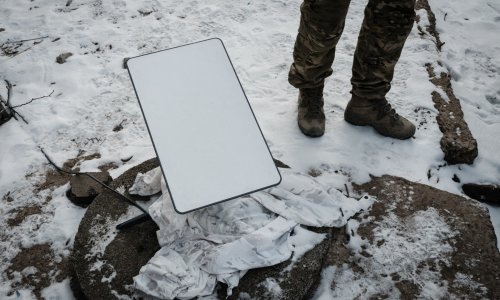The European Commission on Tuesday forwarded to EU member-countries a letter from the Croatian government citing several measures it could take in case the second round of privatisation of the state-owned shipyards failed, an EC official in charge of Croatia said.
Acting in agreement with the Croatian government, we forwarded the letter, which cites some options, to EU member-countries for consideration, said Dirk Lange, head of the department for Croatia at the Directorate General Enlargement.
Lange on Tuesday participated in a preparatory meeting of the Joint EU-Croatia Parliamentary Committee, which it to convene in Zagreb on March 29-30.
He did not specify the options in the Croatian government letter, and when asked if the EC preferred some of the options over others, he said that the EC's only request was for Croatia to respect EU legislation on government grants.
On February 22 the EC recommended that the EU Council, that is, the member-countries, should open negotiations with Croatia on the policy area Competition Policy, the condition being the invitation of bids for the privatisation of state-owned shipyards. When asked if the chapter could be opened at the next intergovernmental accession conference in April, Lange said this depended on the member-countries.
It's difficult to expect that the chapter will be opened in April, it depends on what the member-countries will say. I can't rule it out, but can't guarantee it either, said Lange.
He went on to say that by the end of the Spanish EU presidency on June 30, Croatia could open the remaining three chapters and close negotiations in nine chapters. The chapters that could be closed in the first half of this year are: Free Movement of Goods; Taxation; Transport Policy; Public Procurement; Food Safety, Veterinary and Phytosanitary Policy; Fisheries; Justice, Freedom and Security; Environment, and Financial Control.
In case this scenario works, which in Lange's opinion is rather optimistic, during the Belgian Presidency of the EU in the second half of the year, Croatia would have seven chapters left to close, namely Agriculture and Rural Development; Regional Policy and the Co-ordination of Structural Instruments; Finance and Budgetary Provisions; Judiciary and Fundamental Rights; Competition Policy; Free Movement of Capital; and Foreign, Security and Defence Policy.
The EC is satisfied with the progress made so far. The completion of the membership talks by the end of this year is a possible, but very demanding task. The ball is in Croatia's court, Lange said, adding that the remaining challenges regarding the rule of law and public administration were crucial.
The rule of law covers issues concerning the fight against corruption and organised crime, respect for minority rights, including refugee return, and the prosecution of war crimes.
Those issues are important for the Judiciary and Fundamental Rights chapter, which will definitely be among the last chapters to be closed, Lange said, adding that Croatia's full cooperation with the Hague war crimes tribunal remained crucial to that chapter.
Lange said that encouraging signals were coming from Croatia with regard to the fight against corruption, where he said the necessary legal framework had been established and where now it was necessary to show that it was producing results.
He also underlined the determination of Prime Minister Jadranka Kosor and President Ivo Josipovic in that area.
The other major challenge Croatia will have to deal with before it completes its accession talks is the improvement of public administration, notably the management of EU funds.
Croatia needs to establish a healthy system to manage and control money from EU funds, Lange said.
He announced that the EC would already in April submit to the EU Council a report on Croatia's progress in fulfilling obligations from the already closed chapters. This is particularly important because it shortens the period between the technical completion of the accession talks and the signing of the accession treaty.

































